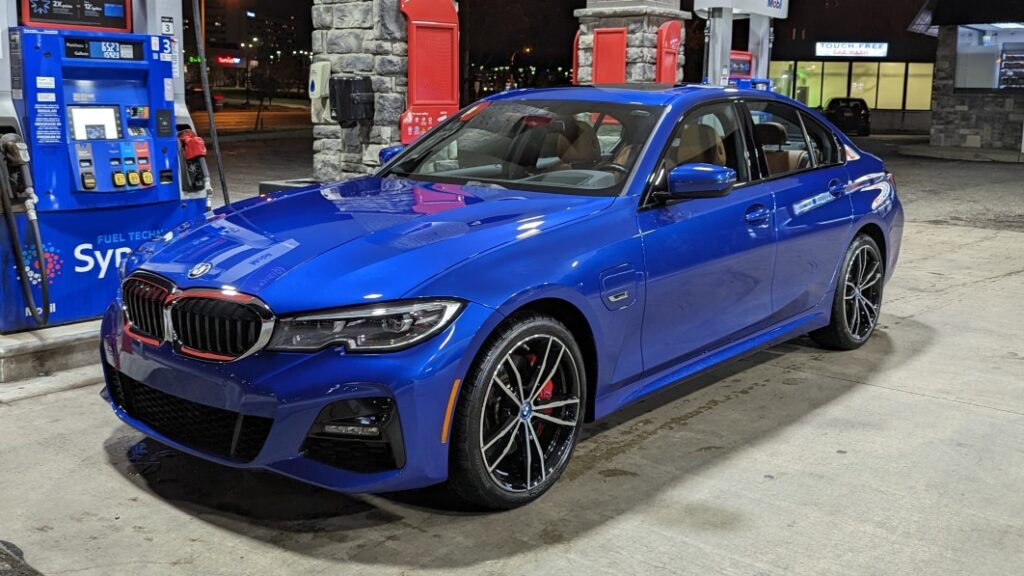Long-Term BMW 330e PHEV efficiency report: How'd we do?

One of the big questions you have to ask yourself before springing for a plug-in hybrid vehicle concerns how many miles you’ll actually be able to drive it under electric power. If you cruise around using the gas engine most of the time due to not plugging in or needing to take frequent, long drives, a PHEV might not be the car for you.
We’re about to say goodbye to our long-term BMW 330e PHEV test car, so we figured it was time to take stock of where we landed from an efficiency standpoint. Of the 13,500 miles we put on the luxury four-door sedan, 2,497 were done under electric power. Some of us ended up doing a lot better than others when it comes to efficiency.
Your author (me) did a number of long highway treks in the 330e that resulted in some rather poor (relatively speaking) mpg figures in the low-30s — calculated specifically using miles we drove between fill-ups, not accounting the mpge while electric driving. That use case is an example of a reason to not buy a plug-in hybrid vehicle. Due to the extra weight from the battery and electric motor involved, the 330e gets worse highway fuel economy than a regular 330i achieves.
On the other hand, some of our editors stayed close to home during their stints in the 330e. We posted impressive mpg figures on many tanks of fuel, reaching far above 40 and 50 mpg on many occasions. The record for miles between fill-ups belongs to none other than Senior Editor, Green, John Beltz Snyder with 825 miles on a single “tank.” His typical driving allowed him to use the 330e’s range, but also allowed him enough time to plug back in and get a proper charge going before he left and used electric power once again.
That’s the kind of lifestyle that fits our 330e perfectly. It’s the only one that justifies the extra cost of a PHEV to begin with, too, because while the performance is comparable to a 330i, you’re probably better off going with the traditional gas-only 3 Series if you can’t consistently charge it. If you can remember, the 330e was eligible for a $5,836 tax credit back when we took delivery. After the dust settled on the new regs, the 330e is no longer eligible for any kind of federal tax credit. What seemed like a really good deal is now considerably less so, which makes how you drive it even more vital to it being a financially prudent purchase.
As it stands, our end “mpg,” taking into account both gas and electric driving, came in at 36.3 mpg. That roundly beats the 330i xDrive’s combined rating of 28 mpg, but our mixed use didn’t exactly allow the 330e to prosper as well as it could have. If Snyder, or News Editor Joel Stocksdale (who also managed some terrific figures with the car) had exclusively driven the car, we’d be looking at an average “mpg” of around 45-50. Get to this level, and the 330e makes an abundance of sense. Driving around a car with 3 Series handling that goes 0-60 mph in the 5-second range while also getting the fuel efficiency of a Corolla Hybrid is something you can sign us up for any day.
What this all boils down to is you, the potential buyer, doing your homework. Know your driving habits, and then purchase accordingly. We’ll have a full wrap-up of our time in our long-term 330e soon, so make sure to come back for that.
Related video:



